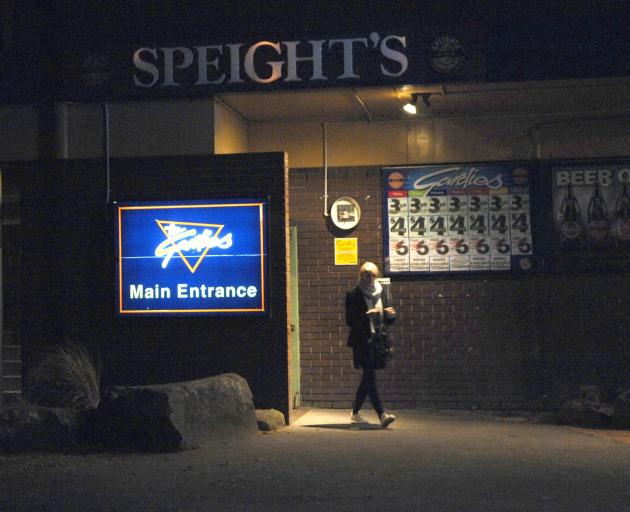
What is needed is the creation of safe drinking spaces for students to learn responsible drinking habits. We need pubs.
Students are known to drink. Aged 20, in my little mind I was the demigod Bacchus, a glass in my hand dancing in the nightclubs of Amsterdam and Manchester at the end of the 1990s. Truth is, I was slightly idiotic, but I was not a drunken, destructive lout due to one factor: I grew up with alcohol in societies where alcohol was freely available.
From an early age, I had a small amount of watered-down wine with meal, as I grew older I consumed alcohol at family events and as a teenager during visits to the bars and pubs across western Europe I had one or two drinks with family and friends. Drinking responsibly in pubs was a normal part of life.
Fast forward 25 years to Dunedin and the full-on drinking culture is astounding. Every night a significant number of students (a proportion, not all) bedecked in clothing from American universities they have never visited (I, at least, went to Penn State for a bit), many with mullet and moustache, herd into liquor stores and return to themed houses to get wrecked before throwing a few items around. Not least glass, to the extent my address is now Bridgestone Tyres, Andersons Bay.
Following the major blow-outs of the Dunedin societal calendar, St Patrick’s Day, the Melbourne Cup and the Toga Party, the area around Leith and Castle Sts in north Dunedin resembles the aftermath of a natural disaster or war zone .
Not fun for the majority who chill out with restraint. Not fun for the university and polytechnic, and local citizens living with town and gown issues. Life-changing for the families and friends of those injured or worse.
Since 2019 the University of Otago and the local community have worked together to address some of the issues outlined above.
The Sophia Charter is a fine example, celebrating Sophia Crestani’s memory by promoting collective responsibility to deal with this thuggish culture. However, there is an issue: as of 2023 the same bad behaviour is ongoing, with heavy drinking, vandalism and, on rare occasions, physical and sexual assault raising its ugly head.
This is caused by students consuming vast amounts of alcohol at their rented homes, where behaviour is not monitored and in extremis, out-of-hand situations harm innocent young victims.
The mistake was to promote the closure of pubs and bars. It has pushed drinking out of the public and into the private realm. It created a dependence on cheap deals at liquor stores and does not encourage socialised drinking culture. Rather than starting freshers week in a controlled environment, students can buy 10% alcohol, fruit-flavoured gut rot, loading up until they are incoherent.
This is not to state that students do not get drunk in pubs — of course they do — but a bar-person can say no, a bouncer can intervene, a young woman can ask for help if threatened.
Now for a simple proposal: recognise that many, but not all, students will drink alcohol. Promote public, controlled spaces to drink safely.
This will involve an attitude change, but the alternative is to continue living with aggression on our streets, self-made urban squalor and difficult town and gown relations.
The above is the sole negative of living in a thriving, happy, prosperous, and exciting city, in the view of many the best small city to live in. Shifting the student drinking culture into safe, public spaces is not a draconian act, it is done across the world.
We must start now to provide an immediate benefit to the university and our city by educating each cohort of students to respect others and drink responsibly.
— Duncan Connors is a senior lecturer in the Otago Business School DBA programme.










